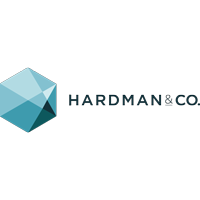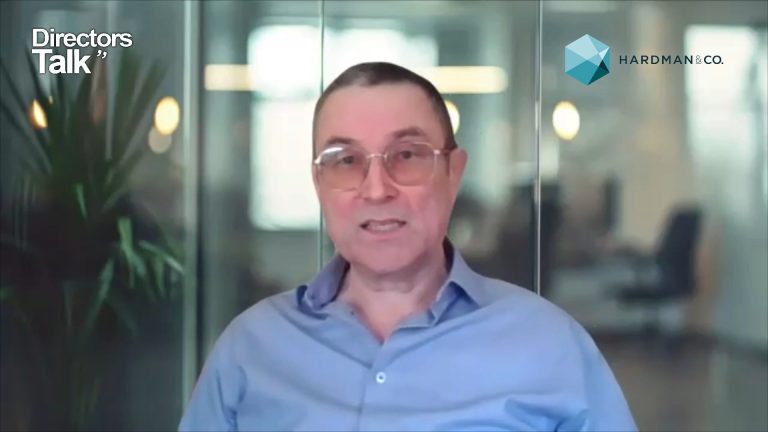Pantheon International (LON:PIN) is the topic of conversation when Hardman and Co’s Analyst Mark Thomas caught up with DirectorsTalk for an exclusive interview.
Q1: You’ve just written a big piece on Pantheon International, highlighting its average ca.12% annual NAV growth since 1987, what can you tell us about the company?
A1: The company, or PIP as it’s known, trades under the ticker PIN. It invests in a diversified portfolio of private equity (PE) funds and directly in private companies. On average, it has beaten its benchmark index by ca.4.0% p.a. since inception in 1987, generating ca.1.5x the market’s returns.
This superior return is not a fluke and has been delivered by i) PE funds earning better returns than quoted companies, ii) PIP investing in the right parts of the PE market, iii) benefits from being in the PIN family, and iv) a structured fund selection process.
PIP gives investors access to the whole PE market, with strong corporate governance. We believe the “real” NAV is above “book” NAV. There are some risks, such as the perceived sensitivity to the economic cycle and sentiment to illiquid unquoted investments, but these appear sentiment-driven, rather than being justified by factual evidence.
Q2: So, you say the PE market outperforms quoted shares, can you tell us more about how that is achieved?
A2: PE adds value in a number of ways:
i) delivery of operational improvements by strengthening management and transferring best practice across all its investments;
ii) there is less constraint on capital expenditure, allowing accretive mergers and acquisitions, and transforming strategy;
iii) it allows an active management of capital structures (i.e. more financial gearing at lower cost);
iv) PE-backed private companies can afford to focus on long-term performance;
v) the potential pool of available companies in which to invest is deeper and broader than the quoted markets;
vi) these businesses are groomed for a high-value exit;
vii) many private-company valuations are lower than those of listed companies, creating an arbitrage opportunity;
viii) the PE process itself involves extensive due diligence, often with inside management information; and
ix) managers’ and shareholders’ interests are closely aligned through common ownership all the way through the investment chain. There are many levers to improve profitability.
Q3: So how does PIP add value over and on top of being in an attractive market?
A3: PIP gives investors a liquid way into what is a highly attractive, but still rather illiquid, underlying market. Being part of the PIN family adds further value, with i) economies of scale, ii) a team with huge experience, through multiple economic cycles, and iii) access to deals at all stages of investment. This has delivered a track record that has not only beaten market indices, but also is generally better than that of its peers.
As a fund of funds, manager selection is key and, in our report, we have detailed why we believe this is process-driven, rather than being dependent on a “star” manager, and why this should prove to be more sustainable. PIP’s flexible mandate means it can invest in the optimal sub-sector PE market and select which elements are likely to add the most value.
Q4: You highlighted a turn in the cycle and investor sentiment to illiquid unquoted investments as risks. What can you say about them?
A4: A downturn has a number of potential impacts, including i) weaker operational performance in the underlying companies – we note that, in 2009, PIP’s underlying companies still produced, on average, an increase of 7% in EBITDA – these rates were slower than before the crisis, but still showed positive growth performances, ii) an impact on PIP’s own activity, iii) a higher risk of default where companies have more leverage – for PIP, we note that mid-market gearing levels are stable – in the larger buy-out space, higher leverage is partially offset by increased prevalence of cov-lite documentation, reducing the probability of default, and iv) the EBITDA rating applied to underlying companies is likely to fall with market falls, reducing the NAV.
These risks may be offset by attractively-priced re-investment opportunities. The bottom line is that, in the early 1990s’ recession, PIP’s NAV rose every year. As you can see, a number of factors are theoretical, and there is strong factual evidence to suggest that PIP is not exposed to them in the real world.
In terms of illiquid and unquoted assets, we need to consider whether their valuation is real and how PIP manages its cashflows.
In terms of valuation, we believe that investors should focus on the facts that i) there are no incentives – indeed maybe dis-incentives – for the PE managers who provide the valuations to inflate them, ii) the spread of managers gives a sense check, as the same underlying company may be held in multiple funds, iii) Pantheon International’s experienced team has been through all trading conditions, and iv) there are the usual independent checks and balances, including auditors and a strong board. In terms of liquidity, we detail, in our report, PIP’s multiple levers to manage cash, its commitment levels and why we believe it is extremely unlikely that it will ever be a forced seller of assets.












































